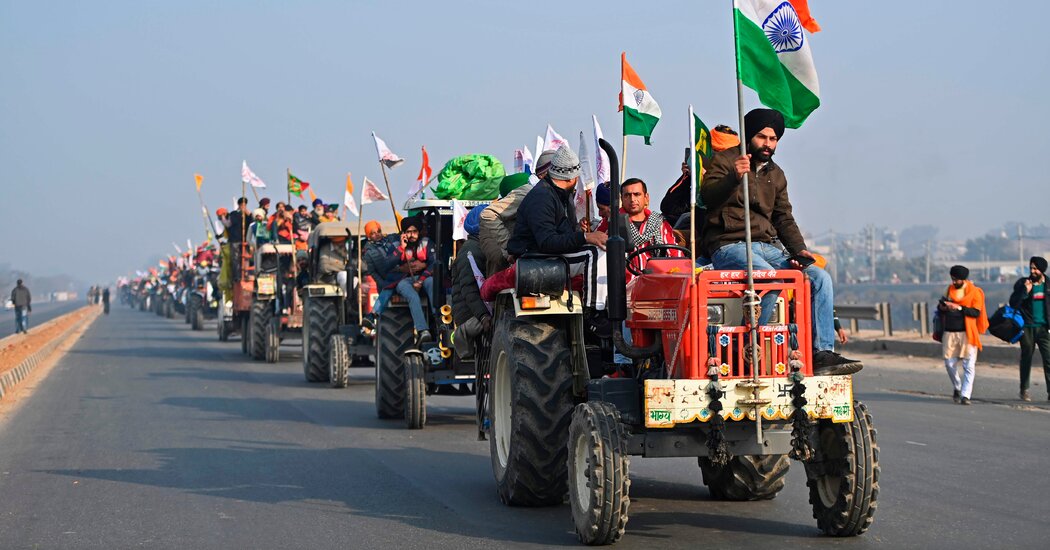
After a year of sustained protests by farmers, Prime Minister Narendra Modi has conceded to their demands and said his government would repeal farm laws that his government had enacted to overhaul the country’s agricultural sector.
It was not in dispute that India’s previous system, which incentivized farmers to grow a huge surplus of grains, needed to be fixed. The protesters feared that the haste with which the laws were passed and the breadth of the changes they involved would send crop prices plunging. Mr. Modi’s government had argued that introducing market forces would help fix the system.
Who were the protesters?
Many of those protesting were members of the Sikh religious minority and came from the states of Punjab and Haryana. Farmers in other parts of the country held rallies in solidarity.
Their protests have laid bare the dire reality of inequality across much of the country.
More than 60 percent of India’s 1.3 billion people still depend primarily on agriculture for their livelihood, though the sector accounts for only about 15 percent of the country’s economic output. That reliance increased after the coronavirus pandemic badly struck the urban economy and sent millions of laborers back to their villages. For years, debts and bankruptcies have been driving farmers to high rates of suicide.
What were they asking for?
The protesters challenged Prime Minister Modi’s efforts to reshape farming in India.
They called for Mr. Modi to repeal laws passed in September 2020 that would minimize the government’s role in agriculture and open more space for private investors. The government said the new laws would unshackle farmers and private investment, bringing growth. But farmers feared that the removal of state protections, which they already considered insufficient, would leave them at the mercy of greedy corporations.
Government support for farmers, which included guaranteed minimum prices for certain essential crops, helped India move past its hunger crisis of the 1960s. But with India liberalizing its economy in recent decades, Mr. Modi — who wants the country’s economy to nearly double by 2024 — realized that such a large government role in the farm sector was no longer sustainable.
Farmers, however, contended that they were struggling even with the existing protections. They feared that market-friendly laws would eventually eliminate regulatory support and leave them bereft, with the weakened economy offering little chance of a different livelihood.




